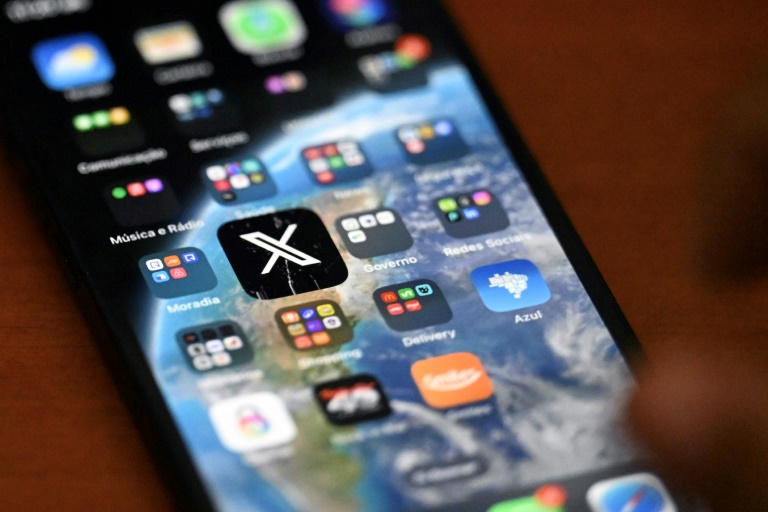The story that moved me most in Season II of chef Pati Jinich’s docuseries La Frontera is a conversation she had with a teacher in the Mennonite community; A conservative religious community primarily against the adoption of technology (they don’t use cell phones, TVs, or rubber tires). She listened as the town’s school teacher and preacher Julius Friesen emotionally revealed that being a teacher wasn’t his choice. He hopes to be a singer or songwriter and aspires to bring change to his community, though those intentions are halted.
It was a vulnerable truth to share, especially because he only just met Jinich. Still, it wasn’t surprising. Inviting people to share their stories in their own words is both Jinich’s gift and craft. She’s been committed to listening across 12 seasons of her award-winning food and travel show, Pati’s Mexican Table, and La Frontera, where she illuminates the stories of communities living on the U.S.-Mexico Border.
“What I do is increasingly about: How can I live in the shoes of someone else and bring that life to the screen so there can be greater understanding? I feel like that’s my mission,” she says. Here, she shares how she answers that question and creates “cycles of connection and growth.”
You are gifted in creating space for people to share their truths. In doing so, you not only bring forth their authenticity, you allow them to see themselves in that same positive light. What is your intention in your conversations and how do you realize it?
I love people. Whenever I meet someone, I want to understand how that incredible human being came to be. Many times, I try to go back like: Where were you born? And, your parents and grandparents? I end up doing family trees of every person I talk to. I try to understand the holistic cosmology of the person because I think every human life is so precious. Then, I want to do all I can to give that person the microphone and screen to share their story however they want.
You’ve shared that shifting from a mindset of rigidity around how the show should be to one of expansiveness around what it can be allowed you to tell richer stories. What was pivotal in transitioning out of a fixed mindset and how do you ensure you’re operating with an open one today?
When I first started [Pati’s Mexican Table] and I wanted to show the true, authentic Mexican and build a true bridge, I felt like I was more rigid. As the years passed, I started not only wanting to share the Mexico that I knew and missed; It was the Mexico that I didn’t know.
The more I started learning, I realized that I didn’t know most of Mexico; Most of the states I hadn’t been to, people I hadn’t met, and regional cuisines I hadn’t tried. My relationship with both my audience and the people I meet on the show changed because the audience became a partner in exploring with me, instead of me showing and teaching them. When I started in Puebla [in Season 2], I went to the place where I ate the Tinga and told the viewer: This is what I ate. This is how it’s done because I knew it. I’m going to Chihuahua for my next season. I haven’t been to many places there. They’re going to come with me to ask the questions. And, since we both don’t know who I’m going to meet, they get more space to tell their stories because they’re telling someone who doesn’t know. There’s a huge advantage in not knowing and learning; You’re giving more agency to the person you’re bringing the microphone to when you don’t have preconceived ideas.

This season of La Frontera is woven with a theme of intimacy. Conservationists share that if you experience the beauty of the land, or taste the food that grows there, you’ll want to protect it. Or, choirs expressing that when you sing together, you can’t feel disconnected. I’d love for you to speak to that intimacy and a few ways we can integrate it into our culture.
It holds true for so many things, especially today when the world seems to be so politicized. I really think that one cannot comment on a situation if you’re not touched by it in any way. People should be careful about all the fiery things they can say that bring people apart and try to put themselves in other people’s shoes. I mean that literally.
For La Frontera, it’s very important because the U.S.-Mexico borderlands are so demonized and narrowly defined. When you go, you realize that 31 million people live in communities across the border which cannot be explained by one theme of undocumented migration. There’s so much that goes on at the border, including people living their daily lives. The more I go, the more I can understand it. It’s really hard to talk about the borderlands without being there. It’s the same thing with other places and situations we find ourselves immersed in today.
You shared a simple, yet powerful insight in La Frontera: We can live in harmony, but we overcomplicate things. One essential example of embodying our better angels is the respect and friendship between border control and the people who provide water to migrants who are fleeing. How would you articulate who we can be to each other and what is a simple action we can take to begin realizing it?
A simple action is to take a step back and observe before judging, commenting, and jumping in the ring to fight people we think are the other. Listen and observe without trying to get your point across. We can learn so much from listening. We have to learn to listen more.
I noticed that you hardly speak in your interviews too; Even your questions are very simple, like, “Tell me what that means to your family.”
That’s been such hard work. I used to make big statements and ask long questions; The more I do this, I realize the more you step back and the shorter the questions, the more you learn and give people a chance to tell their stories. Saying—Tell me more—is much better than saying: So, I see you’re in a home for refugees… It’s just: Tell me where we are. Why did you get into this? What have you learned? It’s ironic that the more that I learn, the more I try to just be there. But, I absorb everything. I absorb the environment, feelings, conversation, and situation. I feel like having that empathy, but really getting out of the way of the questions, is the best way to connect with someone. People don’t like being told. People like being listened to.

A hallmark of this season of La Frontera is the way that everyone—from conservationists to farmers, teachers to entrepreneurs—is utilizing creativity as a way to combat our most pressing challenges, like climate change and immigration. What have the people you’ve interviewed taught you about being and focusing on the light, even amidst some of the world’s greatest hardships?
I’ve been so lucky, because I’ve met so many people who embody that in my travels through the borderlands; Like the man who built the ovens at the border for people to make bread, build community, and have warmth where they’re seeking refuge. They know how flawed the human race is. Still, they share a common denominator of being relentless in getting the resources to continue doing what they do because they believe in it. They have hope in the midst of tragedy.
I think a danger is when you lose hope that what you do cannot touch a life or make a difference. All of these people really believe in the work. They believe in it so much that they were telling me the things that you’re saying—If you come here and see the kids playing with their moms because they don’t have a safe place to be, you will understand their plight. You don’t understand it until you’re there. So, being there as a witness and active participant; And, being able to bring these [stories] to the screen and hopefully have people connect.
One of the stories where I was really broken with emotion was the Mennonite story. We went to the school, knocked on the door, and here comes that teacher. He had no idea we were going to be there. I was there wanting to learn and understand what it is like for him to do what he does and live in the community with the beliefs that he has. I could feel his heart beating in my hand. I could barely keep it together to talk. He was bearing his soul in front of me. I was like: How can I ask him what he wanted to do when he has so much pain from not being able to do it?
I came back home and was really shattered from connecting with and absorbing all of these stories. It took me a while to digest and become me again because I’m very sensitive. But, I wouldn’t change a thing because I think if I weren’t so sensitive—and I don’t shatter when someone is shattering in front of me—then I’m not holding that person who’s becoming so vulnerable. You have to be a partner in the pain and a partner in sharing the emotion.
Recognize your company’s culture of innovation by applying to this year’s Best Workplaces for Innovators Awards before the final deadline, April 5.






)
